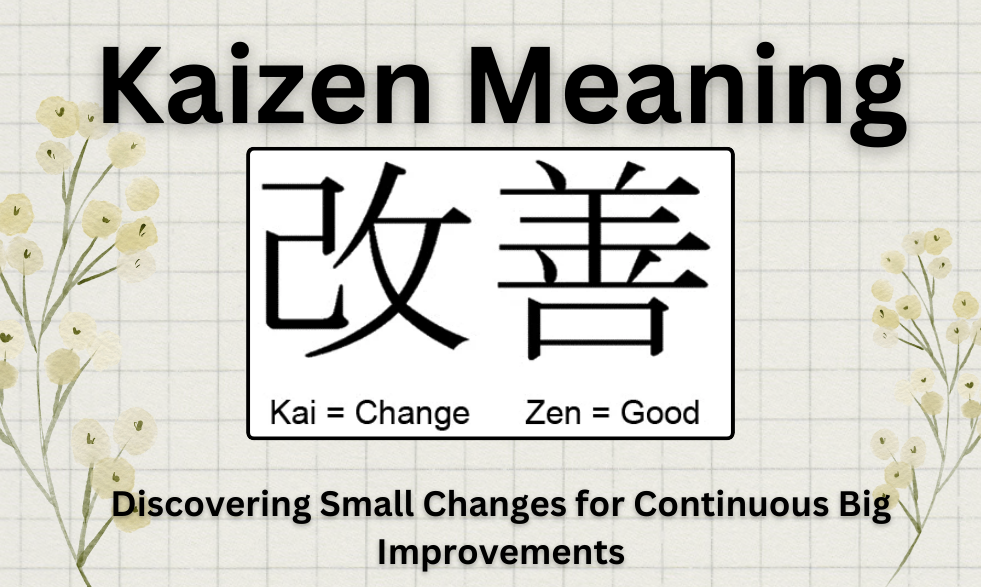Kaizen is a Japanese term meaning continuous improvement which is a philosophy focused on making minor changes that result in great improvements over time.
However, its applications cover various aspects, from manufacturing and healthcare to software development and personal development.
Alright, let’s see Kaizen meaning in other contexts.
Kaizen meaning in other contexts
Well, it’s high time you enhance your vocabulary and do some show-off in front of the world!
1. Manufacturing Context:
Kaizen is most famously associated with the Toyota Production System in manufacturing. It focuses on efficiency and quality through continuous improvement processes. For instance, within Toyota, “Kaizen Events” take place wherein cross-functional teams gather to pinpoint and find solutions for a specific issue within the production lines.
Kaizen Event at Toyota: A team identifies bottlenecks within an assembly line and redesigns workflow to cut production time by 20%.
2. Healthcare Context:
Kaizen principles are well applied in healthcare to enhance health care and operational efficiency. Kaizen is applied by hospitals to reduce the waiting times of patients and to have smoother workflows in hospitals. It is achieved through the engagement of the staff in identifying inefficiencies. Healthcare facilities can achieve smoother operations and bring about better patient outcomes.
Patience waiting times: Hospitals standardize admission services thereby lessening the delay experienced by patients.
3. Context for Software Development:
Kaizen in software development is very close to Agile methodologies. Teams use iterative approaches which involve continuous improvement and feedbacks. As an example, Scrum framework advocates for work process inspection regularly. Teams thereby adapt and perfect approaches based on real-time data.
Agile methodologies: Software teams use iterative cycles to enhance the development of products continuously.
4. Personal Development Context:
On an individual basis, Kaizen could be interpreted to self-improvement strategies. The small improvements that individuals make in their daily lifestyle may include the improvement in time management skills, among others, hence positively affecting people on a personal level over time. This style encourages self-reflection and gradual improvement of one’s mode of life.
Habits development: Human beings progressively modify their daily improvements to build helpful habits.
Conclusion
The rate in which Kaizen is being implemented in various sectors indicates that this approach is truly very effective in providing a culture of continuous improvement. It allows organizations and even individuals to see great progress in different fields with small changes that can make a significant difference.
Related: Interested in knowing the Meaning of Definitions? Then know them here:
